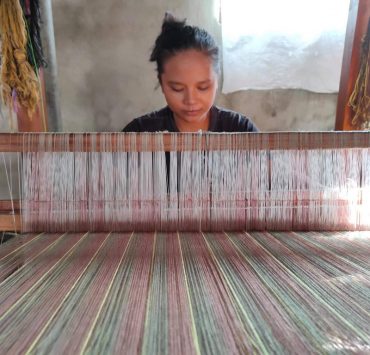For a very family-oriented culture, it’s surprising that families have a lot to learn about supporting each other, especially when it comes to matters of mental health.
In the last #StartANewDay webinar hosted by Globe in partnership with Inquirer, a number of questions about the family’s role in one’s mental health opened up important discussions. This included debunking misconceptions not only about mental health but also the attitudes and cultures we foster at home.
Addressing basic needs help with mental health
Remember Maslow’s hierarchy of needs? At the very base are physiological needs like sleeping and eating well. University of the Philippines PsycServ’s clinical supervisor Dr. Anna Tuazon, who often works with children and families, shares that these, along with having fun and enjoying other people’s company, should also be prioritized.
Being “able to adapt and be flexible, tolerate ambiguity and uncertainty, tolerate frustration and distress, and [being] able to accept and express emotions” are also key in helping with one’s mental health.
Parents can—and should—be both firm and supportive
When dealing with mental health issues, especially in children, parents may find themselves stuck at a crossroads: There is, of course, a need to be firm and impose structures to instill discipline and other skills. But there’s also a need to be more supportive.
Dr. Tuazon says parents shouldn’t have to choose one or the other. “You need to be both firm and supportive at the same time,” she says. “You cannot be supportive without structure. We can’t teach them skills without the structure to learn. [Parenting is not] black and white.”
One way to show support, she says, is to prioritize communication and openness.
Emotions are okay
“Set up a cultural environment where emotions can be expressed,” Dr. Tuazon says. “Parents, model healthy ways of coping. Show them how to deal with anxiety, show them that it’s okay to talk about feelings.”
This is especially important because there are still many parents, especially fathers, she notes, who come to her with concerns like, “I want my son to stop crying.”
Manong Ari Verzosa, entrepreneur and mental health advocate, also shares that the mentality that boys and men shouldn’t cry is still pervasive. “They say kasi if you cry, that makes you weak. That makes you less of a man. I disagree. It makes you more human. That’s what we are, that’s what we do. [Crying] doesn’t make you weak. It’s okay to show your emotions. Bring it out, let your parents know. If hindi nila matanggap, go to a friend,” he says. “Don’t be afraid to show your emotions.”
The way you react matters
If and when a family member does reach out for help, the important thing to do is to respond appropriately. We’ve often already seen online how important it is to avoid saying that those experiencing mental health issues are “overreacting.” That holds true.
But additionally, Dr. Tuazon says, it’s important to validate your family member’s feelings. “Listen to someone and convey to them that what they’re feeling, what they’re going through make sense based on the situation. You don’t have to agree or approve of someone’s thoughts when you validate, you just say that it makes sense that [they] feel that way.”
Jean Goulbourn, founder of the Natasha Goulbourn Foundation and suicide crisis hotline Hopeline, shares the importance of being observant, especially with children. Most children won’t express that they’re feeling sad or insecure, and may channel their emotions through sudden changes in habits and attitudes.
Dr. Tuazon adds, “They won’t tell you ‘I’m sad, I’m lonely.’ They will come to you with a stomach ache, a headache. Irritability. It’s not the problem, it’s the flag that they’re trying to deal with their problems.”
For actress and mental health advocate Iza Calzado meanwhile it’s also important to give people space. She talks about the power of the pause. “I’m a highly reactive person, so I really have to take that pause and really be careful about what I say. I think that’s something to practice here at home. [Have] some time to reflect. That time will also make you… may empathy ka. You put yourself in the shoes of that family member.”
Don’t be afraid of seeking help
“Mental health is health,” says Dr. Tuazon. While we may be more focused on ensuring our immunity is at its peak (what with the continuous rise in COVID-19 cases in the country), it’s important to pay attention to our mental health as well. “Health is not just the absence of illness, so how can we make ourselves and our children resilient? A healthy relationship with at least one parent or close adult—that can be a teacher, a neighbor,” she says.
Many may be intimidated by the idea of consulting with a psychologist or professional, but Dr. Tuazon says it often is just a conversation. “Some patients say it feels like a talk show that they’re the guest [of].” To children, she says, she introduces herself as a “professional secret-keeper.”
Manong Ari adds that to know if our family members, especially children, need to seek help, it’s also important to know the people close to them. “The people that patients talk to are their friends. [So take note of] cue words like ‘pagod na ’ko, ’di ko na kaya.’ They tell this to their friends.”
When it comes to seeking help, the panel agrees, it’s always better to do it early.
There are many questions about dealing with mental health, both within oneself and with others. That’s why establishing support groups and communities as well as providing resources where more people can learn and understand are necessary.
Globe and Inquirer’s webinar series is just one avenue for such learning. For more insights on the topic, the Oct. 2 webinar can be viewed on Facebook.
Header image courtesy of Migs Reyes on Pexels
Get more stories like this by subscribing to our weekly newsletter here.
Read more:
A real crisis call: DOH’s 2021 mental health budget just got smaller
It’s time we talked about our educators’ mental health
How to take care of your mental health, according to WHO and CDC
Writer: PAULINE MIRANDA




